This article provides a comprehensive guide to the most common types of legal cases in the U.S. and offers expert tips on finding qualified attorneys in major metropolitan areas.
Understanding Personal Injury Cases
Personal injury cases often arise from accidents or negligence that result in harm. It is crucial to choose a lawyer who specializes in personal injury law to navigate the complexities of these cases effectively. Look for attorneys with a proven track record in similar cases, and consider their negotiation skills and trial experience.
Navigating Medical Malpractice Claims
Medical malpractice involves negligence by healthcare professionals. Selecting a lawyer who specializes in medical malpractice is essential, as these cases require an understanding of both legal and medical standards. Verify the attorney’s experience with medical experts and their success rate in similar claims.
Breach of Contract Disputes
Breach of contract cases occur when one party fails to fulfill their contractual obligations. A lawyer with expertise in contract law can help you navigate these disputes. Look for attorneys who have experience in the specific industry related to your contract.
Property Disputes Explained
Property disputes can involve boundaries, ownership, or usage rights. Identifying a lawyer experienced in real estate law is crucial for resolving these issues. Ensure they are familiar with local property laws and have a strong negotiation background.
Landlord-Tenant Disputes
Landlord-tenant disputes often arise from lease agreements and rental conditions. A lawyer familiar with housing laws can help protect your rights in these situations. Look for attorneys with a focus on tenant rights and a history of successful outcomes in similar cases.
Understanding Defamation Cases
Defamation, whether libel or slander, can have severe consequences. Knowing how to find a lawyer skilled in defamation cases is essential for seeking justice. Seek attorneys who have successfully handled media-related cases and understand the nuances of free speech laws.
Employment Disputes Overview
Employment disputes can involve wrongful termination, discrimination, or wage issues. Finding a lawyer with a background in employment law is key to addressing these conflicts. Look for attorneys who are familiar with federal and state labor laws and have a strong litigation history.
Product Liability Cases
Product liability cases arise when defective products cause harm. A lawyer specializing in this area can help hold manufacturers accountable. Ensure they have experience with similar cases and understand the relevant safety regulations.
Wrongful Death Claims
Wrongful death claims involve seeking compensation for the loss of a loved one due to negligence. An experienced attorney can guide you through this emotionally challenging process. Look for lawyers with a compassionate approach and a strong history of securing settlements.
Class Action Lawsuits
Class action lawsuits allow a group of individuals to sue a defendant collectively. Finding a lawyer with experience in class actions can enhance your chances of success. Seek attorneys who have managed large-scale litigation and understand the complexities involved.
Assault and Battery Legal Issues
Assault and battery cases involve intentional harm or threats. A lawyer skilled in criminal defense can provide essential guidance in these matters. Look for attorneys with experience in criminal law and a successful defense history.
Drug Offenses and Legal Representation
Drug offenses can carry severe penalties. Selecting an attorney with experience in drug-related cases is vital for effective defense. Ensure they are knowledgeable about state and federal drug laws and have a strong courtroom presence.
Theft and Burglary Cases
Theft and burglary charges require a lawyer who understands criminal law. Finding someone with a strong defense background can significantly impact your case. Look for attorneys who have successfully defended similar charges and have a reputation for thorough investigations.
Fraud and Embezzlement Cases
Fraud and embezzlement involve deceit for financial gain. A lawyer experienced in white-collar crime can provide crucial assistance in these complex cases. Seek attorneys who have dealt with financial institutions and possess a deep understanding of financial regulations.
Murder and Homicide Defense
Murder and homicide cases are among the most serious criminal charges. A skilled criminal defense attorney is essential for navigating these high-stakes situations. Look for lawyers with extensive trial experience and a strong reputation in criminal defense.
DUI/DWI Legal Challenges
DUI/DWI charges can lead to severe penalties. Finding a lawyer with experience in handling such cases can help mitigate the consequences. Seek attorneys who specialize in DUI cases and are familiar with local laws and defenses.
Domestic Violence Legal Matters
Domestic violence cases require sensitive and knowledgeable legal representation. Seeking a lawyer who specializes in family law and domestic violence is essential for protection and guidance. Look for attorneys who have experience with protective orders and understand the emotional complexities involved.
Finding Qualified Attorneys in NYC
When searching for a lawyer in New York City, consider their credentials, experience, and specialization to ensure you receive the best legal representation for your case. Utilize platforms such as Avvo, Martindale-Hubbell, and local bar associations to find qualified attorneys. Check for reviews, consult initial consultations, and always be cautious of red flags such as lack of transparency in fees or poor communication.

Understanding Personal Injury Cases
Personal injury cases are a significant aspect of the legal landscape, arising from accidents or negligence that result in harm to individuals. These cases can encompass a wide range of incidents, from car accidents to slip and fall incidents, and even medical malpractice. Understanding the nuances of personal injury law is essential for anyone seeking to navigate this complex area effectively.
When pursuing a personal injury claim, it is crucial to establish that the other party was negligent. This typically involves demonstrating that they had a duty of care, breached that duty, and that the breach directly caused your injuries. It’s important to gather evidence, such as medical records, witness statements, and photographs of the accident scene, to support your case.
Choosing the right lawyer is vital. Look for attorneys who specialize in personal injury law and have a proven track record of success in similar cases. Here are some tips to help you find the best personal injury attorney:
- Experience: Seek a lawyer with extensive experience in personal injury cases, particularly those similar to yours.
- Reputation: Research their reputation through online reviews, testimonials, and ratings on legal platforms.
- Consultation: Many personal injury attorneys offer free consultations. Use this opportunity to assess their expertise and approach.
- Fees: Understand the fee structure. Most personal injury lawyers work on a contingency fee basis, meaning they only get paid if you win your case.
- Communication: Choose a lawyer who communicates clearly and keeps you informed throughout the process.
Moreover, be aware of potential red flags. Avoid lawyers who pressure you to settle quickly or those who lack transparency about their fees and processes. A reputable attorney will prioritize your best interests and provide honest assessments of your case.
In major metropolitan areas like New York City, Los Angeles, and Chicago, the competition among personal injury lawyers is fierce. Utilize legal directories, bar association referrals, and personal recommendations to identify qualified candidates. Additionally, attending local legal seminars or workshops can help you connect with experienced attorneys in your area.
In summary, understanding personal injury cases and knowing how to find a qualified attorney can significantly impact the outcome of your claim. By following the guidelines outlined above, you can navigate the legal landscape with confidence and ensure you receive the compensation you deserve.

Navigating Medical Malpractice Claims
Medical malpractice is a serious issue that arises when healthcare professionals fail to meet the accepted standards of care, resulting in harm to patients. This complex area of law encompasses a variety of situations, including surgical errors, misdiagnoses, medication mistakes, and inadequate follow-up care. Understanding the intricacies of medical malpractice claims is essential for anyone seeking justice in such cases.
When considering a medical malpractice claim, it is crucial to recognize that not all unfavorable medical outcomes constitute malpractice. To establish a successful claim, you must demonstrate negligence, which involves proving that the healthcare provider failed to act as a reasonably competent professional would in similar circumstances. This often requires expert testimony from other medical professionals.
To effectively navigate the complexities of medical malpractice claims, it is essential to select a lawyer who specializes in this field. Here are some practical steps to help you find the right attorney:
- Research Specialization: Look for lawyers who specifically focus on medical malpractice. Their expertise will be invaluable in understanding the nuances of your case.
- Check Credentials: Review the attorney’s qualifications, including their education, years of experience, and any relevant certifications. Membership in professional organizations, such as the American Association for Justice, can also indicate a commitment to this area of law.
- Read Reviews: Online platforms like Avvo and Martindale-Hubbell offer client reviews and ratings, providing insight into an attorney’s reputation and success rate in medical malpractice cases.
- Consultations: Schedule initial consultations with potential lawyers. This is an opportunity to discuss your case and gauge their understanding of medical malpractice law. Pay attention to how they communicate and whether they take the time to answer your questions.
- Ask About Case Management: Inquire about how the lawyer handles cases. A good attorney should have a clear strategy for investigating your claim, gathering evidence, and working with medical experts.
- Evaluate Fees: Understand the fee structure before hiring a lawyer. Many medical malpractice attorneys work on a contingency fee basis, meaning they only get paid if you win your case. Ensure you are clear about any additional costs that may arise.
In addition to these steps, it is important to be aware of red flags when hiring a medical malpractice attorney. Avoid lawyers who:
- Promise guaranteed results, as no attorney can assure a specific outcome.
- Pressure you into signing contracts quickly without giving you adequate time to review.
- Have a history of disciplinary actions or complaints against them.
Medical malpractice claims can be emotionally and financially taxing, but with the right legal representation, you can pursue the compensation you deserve. By following the guidelines above, you can find a qualified attorney who will advocate for your rights and navigate the complexities of your case effectively.

Breach of Contract Disputes
are a common occurrence in the realm of legal disputes, arising when one party fails to meet their obligations as outlined in a contract. These situations can lead to significant financial losses and strained relationships between the parties involved. Understanding the intricacies of breach of contract cases is crucial for anyone entering into a contractual agreement, whether it’s a business deal, a service contract, or a lease agreement.
In these disputes, it is essential to identify the specific type of breach that has occurred. There are generally two categories: material breach and minor breach. A material breach is a significant failure that undermines the contract’s purpose, while a minor breach involves a less severe violation that does not fundamentally affect the contract’s overall intent. Knowing the difference can help in determining the appropriate legal response.
Engaging a lawyer with expertise in contract law can be instrumental in navigating these disputes effectively. Here are some key considerations when seeking legal representation for breach of contract cases:
- Experience: Look for attorneys who specialize in contract law and have a proven track record in handling breach of contract cases. Their experience can provide valuable insights into the nuances of your specific situation.
- Credentials: Verify the lawyer’s qualifications, including their education, bar association membership, and any additional certifications in contract law.
- Client Reviews: Research online reviews and testimonials from former clients to gauge the attorney’s reputation and success rate in similar cases.
- Consultation: Schedule initial consultations with multiple attorneys to discuss your case. This allows you to assess their understanding of your situation and their proposed strategies.
- Fees: Understand the attorney’s fee structure, whether it’s hourly, flat-rate, or contingency-based, and ensure it aligns with your budget.
Additionally, it is important to avoid red flags that may indicate a less trustworthy attorney. Be wary of lawyers who:
- Make unrealistic promises about the outcome of your case.
- Pressure you to sign contracts or agreements without allowing you to review them thoroughly.
- Have a poor communication record or are difficult to reach.
In major metropolitan areas like New York City, Los Angeles, and Chicago, the competition among attorneys can be fierce. Therefore, taking the time to conduct thorough research can significantly impact the outcome of your case. Utilize legal directories, bar association referrals, and online platforms to find qualified attorneys in your area.
In summary, breach of contract disputes can be complex and challenging, but with the right legal representation, you can navigate these issues effectively. By focusing on experience, credentials, and client feedback, you can find a qualified attorney who will advocate for your interests and help you achieve a favorable resolution.

Property Disputes Explained
Property disputes are often complex legal matters that can arise from various issues, including boundaries, ownership, and usage rights. These disputes can involve neighboring property owners, landlords and tenants, or even real estate developers and local governments. Resolving these issues requires a clear understanding of real estate law and the ability to navigate the legal system effectively.
When facing a property dispute, it is crucial to identify a lawyer who specializes in real estate law. Such an attorney will have the expertise necessary to handle the intricacies of property-related cases, which can vary significantly depending on local laws and regulations. Here are some key considerations when searching for a qualified attorney to assist with property disputes:
- Experience in Real Estate Law: Look for a lawyer with a proven track record in handling property disputes specifically. Their experience will be invaluable in understanding the nuances of your case.
- Local Knowledge: Choose an attorney familiar with the local real estate market and laws. This knowledge can make a significant difference in how effectively they can represent you.
- Client Reviews and Testimonials: Research potential lawyers online to find reviews from previous clients. Positive feedback can indicate a lawyer’s ability to navigate property disputes successfully.
- Initial Consultation: Many attorneys offer a free initial consultation. Use this opportunity to assess their communication style, understanding of your case, and overall approach to resolving disputes.
- Clear Fee Structure: Ensure that the lawyer provides a transparent fee structure. Understanding how they charge for their services can help you avoid unexpected costs down the line.
In addition to these factors, it is essential to be aware of red flags when hiring a lawyer. Avoid attorneys who:
- Do not specialize in real estate law.
- Have numerous negative reviews or complaints.
- Do not clearly communicate their fees and billing practices.
- Pressure you into making quick decisions without fully explaining your options.
Property disputes can be emotionally charged and financially draining. Therefore, having a knowledgeable and trustworthy lawyer by your side is paramount. They can help you navigate the complexities of your case, whether it involves negotiating with the other party, preparing for mediation, or representing you in court.
In conclusion, property disputes require careful consideration and the right legal representation. By focusing on experienced attorneys who specialize in real estate law and understanding the factors that contribute to successful legal representation, you can significantly improve your chances of achieving a favorable outcome in your property dispute.

Landlord-Tenant Disputes
are a common source of conflict in the realm of housing and rental agreements. These disputes can arise from a variety of issues, including but not limited to, disagreements over lease agreements, maintenance responsibilities, security deposits, and eviction processes. It is crucial for both landlords and tenants to understand their rights and obligations under the law to avoid potential legal battles.
In many cases, disputes stem from miscommunication or a lack of understanding regarding the terms of the lease. For instance, a tenant may believe that a landlord is responsible for certain repairs, while the lease states otherwise. Similarly, landlords may feel that tenants are violating lease terms, such as noise ordinances or unauthorized alterations to the property. These misunderstandings can escalate into serious conflicts that necessitate legal intervention.
To navigate these complex situations, hiring a lawyer who specializes in housing laws is highly advisable. A knowledgeable attorney can help protect your rights and guide you through the legal process, whether you are a landlord or a tenant. They can provide clarity on local housing regulations, assist in drafting or reviewing lease agreements, and represent you in court if necessary.
When searching for a qualified attorney in major metropolitan areas like New York City, it is essential to consider several factors:
- Experience: Look for an attorney with a proven track record in handling landlord-tenant disputes. Experience in local courts and familiarity with state and city housing laws can be invaluable.
- Specialization: Ensure the lawyer specializes in real estate or housing law. This focus means they are up-to-date on the latest regulations and case precedents that could impact your case.
- Client Reviews: Research online reviews and testimonials. Feedback from previous clients can provide insight into an attorney’s effectiveness and professionalism.
- Consultation: Many lawyers offer free initial consultations. Use this opportunity to discuss your case and assess whether you feel comfortable with their approach.
Additionally, be wary of red flags when selecting a lawyer:
- Lack of Communication: If an attorney is slow to respond to your inquiries during the initial consultation, this may indicate how they will handle your case.
- Unclear Fees: Ensure that the attorney clearly outlines their fee structure. Hidden fees can lead to unexpected expenses down the line.
- Pressure Tactics: Be cautious of lawyers who rush you into making decisions. A reputable attorney will provide you with the necessary information to make informed choices.
In conclusion, landlord-tenant disputes can be complex and emotionally charged. Engaging a lawyer who understands housing laws can make a significant difference in resolving these conflicts effectively. By following the guidelines outlined above, you can find a qualified attorney who will advocate for your rights and help facilitate a fair resolution.

Understanding Defamation Cases
Defamation is a serious legal issue that can significantly impact an individual’s reputation and livelihood. It encompasses two main forms: libel, which refers to written statements, and slander, which pertains to spoken statements. Both forms can lead to severe personal and professional consequences, making it crucial to understand how to navigate these complex cases.
When dealing with defamation, the first step is to establish whether the statement in question is indeed defamatory. This typically involves proving that the statement was false, damaging, and made with a certain degree of fault or negligence. If you believe you have been defamed, seeking a qualified attorney who specializes in defamation law is essential.
Here are some key considerations for finding a skilled defamation lawyer:
- Experience and Specialization: Look for a lawyer with a proven track record in defamation cases. They should understand the nuances of both libel and slander and have experience handling similar cases.
- Reputation: Research potential attorneys through online reviews, legal directories, and professional associations. A lawyer with a strong reputation in the community can provide more confidence in their abilities.
- Consultation: Many lawyers offer free initial consultations. Use this opportunity to discuss your case and gauge their understanding and approach to your specific situation.
- Communication Skills: Choose a lawyer who communicates clearly and effectively. They should be able to explain complex legal concepts in a way that you can understand.
- Fee Structure: Understand the lawyer’s fee structure upfront. Some may work on a contingency basis, while others may charge hourly rates or flat fees. Ensure that their fees align with your budget and expectations.
In addition to these factors, be aware of potential red flags when hiring a lawyer:
- Unrealistic Promises: Be cautious of lawyers who guarantee specific outcomes. Legal cases can be unpredictable, and no lawyer can assure a win.
- Lack of Transparency: If a lawyer is not forthcoming about their experience, fees, or case strategy, consider looking for someone else.
- Poor Communication: If you struggle to get in touch with a lawyer or receive vague responses, it may indicate that they are not the right fit for you.
In summary, defamation cases can be complicated and emotionally taxing. Finding the right lawyer is critical to navigating the legal landscape effectively. By focusing on experience, reputation, and communication, you can increase your chances of securing a favorable outcome in your defamation claim.
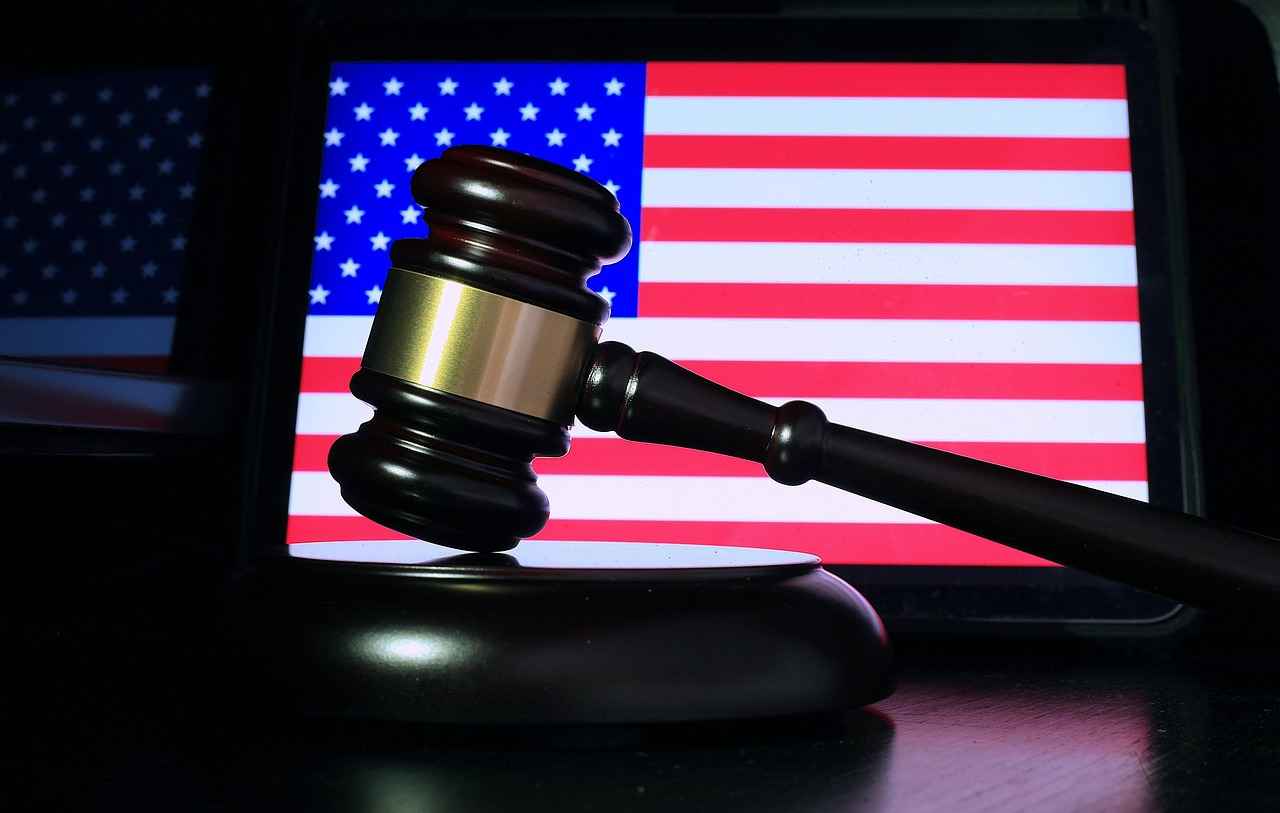
Employment Disputes Overview
When it comes to employment disputes, individuals often find themselves facing serious challenges that can impact their careers and livelihoods. These disputes may encompass a variety of issues, including wrongful termination, discrimination, and wage disputes. Understanding the complexities surrounding these matters is crucial for anyone seeking to resolve them effectively.
Wrongful termination occurs when an employee is dismissed from their job for illegal reasons, such as retaliation for whistleblowing or discrimination based on race, gender, or other protected characteristics. If you believe you have been wrongfully terminated, it is essential to gather evidence, such as emails, performance reviews, and witness statements, to support your claim.
Discrimination in the workplace can take many forms, including bias based on age, gender, race, disability, or sexual orientation. Employees who feel they have been discriminated against should document incidents and seek legal advice promptly. Employment lawyers can help navigate the complexities of discrimination laws and advocate for your rights.
Another common issue is wage disputes, which can arise from unpaid overtime, misclassification of employees, or failure to pay minimum wage. Understanding your rights under the Fair Labor Standards Act (FLSA) is critical. If you suspect wage theft, consult with a lawyer who specializes in employment law to explore your options for recovery.
Finding the right lawyer to handle your employment dispute is key to achieving a favorable outcome. Here are some expert tips to consider:
- Look for specialization: Ensure that the attorney has a strong background in employment law and a track record of handling cases similar to yours.
- Check credentials: Verify their education, bar association membership, and any specialized certifications they may hold.
- Read reviews: Look for testimonials and reviews from previous clients to gauge their effectiveness and professionalism.
- Schedule consultations: Many lawyers offer free initial consultations. Use this opportunity to assess their communication style and approach to your case.
- Ask about fees: Understand their fee structure, whether it’s hourly or contingency-based, and ensure there are no hidden costs.
Additionally, be wary of red flags, such as:
- Lack of experience: Avoid hiring a lawyer without a proven track record in employment law.
- Poor communication: If a lawyer is unresponsive or fails to provide clear answers during your initial consultation, consider seeking other options.
- Pressure tactics: Be cautious of any attorney who pressures you to sign contracts or make quick decisions without fully understanding your case.
In conclusion, employment disputes can be complex and emotionally taxing. By taking the time to find a qualified and experienced attorney, you can significantly improve your chances of a successful resolution. Whether you are dealing with wrongful termination, discrimination, or wage issues, having the right legal representation is essential for protecting your rights and achieving justice.

Product Liability Cases
are a crucial aspect of personal injury law that addresses situations where consumers are harmed by defective products. These cases can arise from various defects, including design flaws, manufacturing errors, or inadequate warnings about potential risks. When a product fails to meet safety standards and causes injury, the injured party may seek compensation from the manufacturer or seller.In the realm of product liability, understanding the different types of defects is essential. A design defect occurs when the product is inherently unsafe, even if manufactured correctly. A manufacturing defect happens when an error occurs during the production process, making an otherwise safe product dangerous. Lastly, failure to warn refers to situations where manufacturers do not provide adequate instructions or warnings about the product’s use, leading to consumer harm.
Navigating product liability claims can be complex. An attorney specializing in this field can help victims understand their rights and the legal process. They can assess the case, gather evidence, and build a strong argument to hold manufacturers accountable. This legal expertise is vital, as manufacturers often have substantial resources to defend against claims.
When seeking a lawyer for a product liability case, consider the following tips:
- Experience and Specialization: Look for attorneys who specialize in personal injury and have a proven track record in product liability cases.
- Reputation: Research the lawyer’s reputation through online reviews, testimonials, and professional ratings. Websites like Avvo and Martindale-Hubbell can provide valuable insights.
- Consultations: Many lawyers offer free initial consultations. Use this opportunity to discuss your case and gauge their expertise.
- Communication: Choose a lawyer who communicates clearly and promptly, as effective communication is crucial throughout the legal process.
- Contingency Fees: Many product liability attorneys work on a contingency fee basis, meaning they only get paid if you win your case. Ensure you understand their fee structure before proceeding.
It’s also important to be aware of red flags when hiring a lawyer. Avoid attorneys who make unrealistic promises about the outcome of your case or those who pressure you into making quick decisions. Additionally, be cautious of lawyers who lack transparency regarding their fees and costs.
In conclusion, product liability cases represent a significant area of personal injury law that requires skilled legal representation. By understanding the nuances of these cases and knowing how to find qualified attorneys, individuals can better navigate the complexities of seeking justice for harm caused by defective products. Always remember to conduct thorough research and choose a lawyer who is not only experienced but also aligns with your specific needs and concerns.

Wrongful Death Claims
are a deeply sensitive area of law that seeks to provide compensation for the loss of a loved one due to the negligence or misconduct of another party. This legal avenue is not just about seeking monetary damages; it is also about holding the responsible party accountable for their actions.
When navigating the complexities of a wrongful death claim, it is essential to understand the various components that can impact your case. These may include the circumstances surrounding the death, the relationship to the deceased, and the specific laws in your state. An experienced attorney can help you to evaluate these factors and build a strong case.
One of the first steps in pursuing a wrongful death claim is to consult with a qualified attorney who specializes in this area of law. Look for a lawyer with a proven track record in handling wrongful death cases, as they will have the necessary knowledge and experience to guide you through the process. Here are some important considerations when selecting an attorney:
- Experience: Seek out attorneys who have significant experience in wrongful death claims, ideally with a history of successful outcomes in similar cases.
- Specialization: Attorneys who specialize in personal injury law, particularly wrongful death, will be more familiar with the nuances of the legal process.
- Reputation: Research potential lawyers through online reviews, testimonials, and professional ratings. A strong reputation in the legal community can be a good indicator of their capability.
- Communication: Choose an attorney who communicates clearly and empathetically, as this will be crucial during such a difficult time.
In addition to these factors, it is also important to consider the fee structure of the attorney. Many wrongful death lawyers work on a contingency fee basis, meaning they only get paid if you win your case. This can be beneficial for families who may be facing financial difficulties after the loss of a loved one.
Moreover, be prepared for the emotional challenges that come with pursuing a wrongful death claim. The legal process can be lengthy and taxing, and having a compassionate attorney by your side can make a significant difference. They can provide not only legal guidance but also emotional support as you navigate this difficult journey.
It is also important to be aware of the statute of limitations for filing a wrongful death claim, which varies by state. Delaying action can result in losing the right to seek compensation, so it is advisable to consult with an attorney as soon as possible after the incident.
Finally, consider joining support groups or seeking counseling during this time. The process of dealing with a wrongful death claim can bring up many emotions, and having a support system in place can help you cope with your loss while you pursue justice.
In summary, wrongful death claims are a serious legal matter that requires the expertise of a qualified attorney. By understanding the complexities involved and taking the time to find the right legal representation, you can ensure that you are taking the necessary steps to seek justice for your loved one.
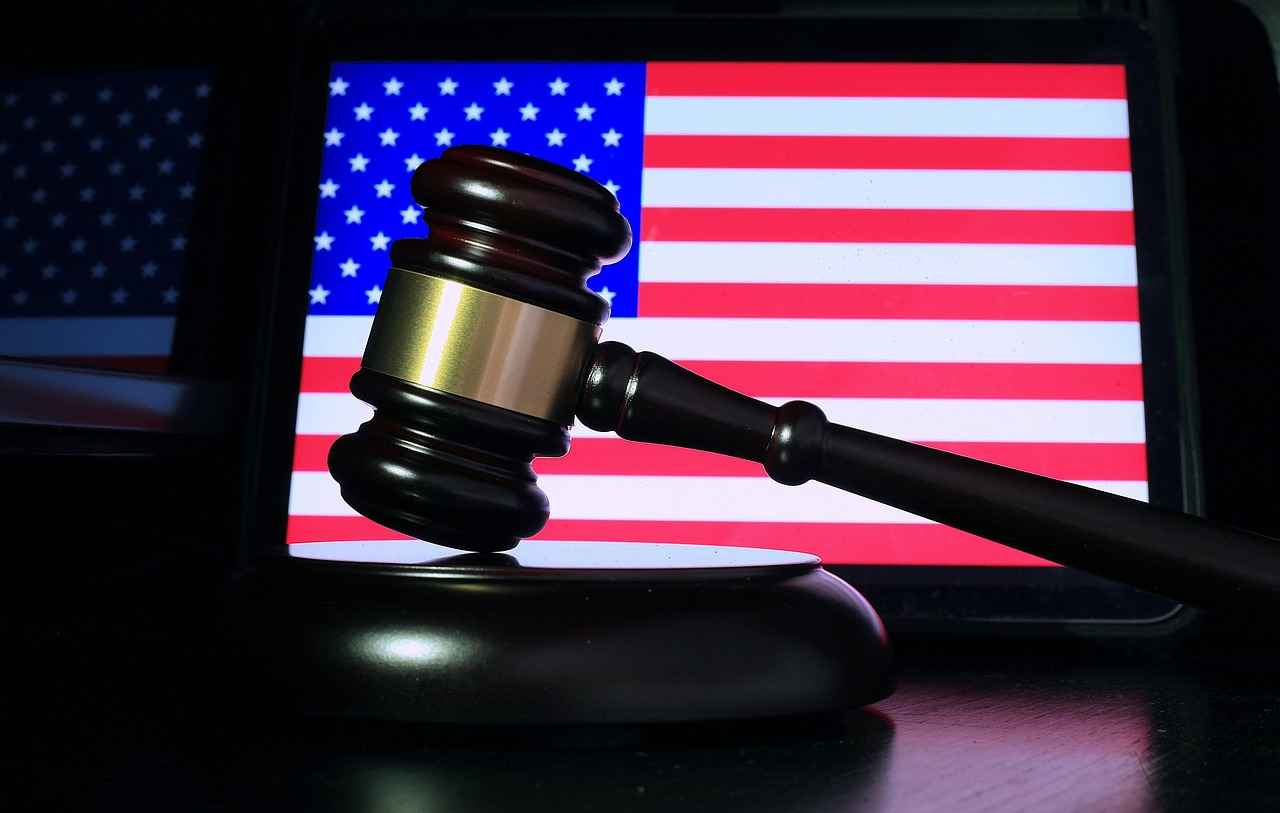
Class Action Lawsuits
serve as a powerful legal mechanism that enables a group of individuals to collectively sue a defendant. This type of lawsuit is particularly beneficial when numerous people have been affected by the same issue, such as defective products, corporate fraud, or environmental disasters. By banding together, plaintiffs can share legal costs and resources, making it more feasible to pursue justice against larger entities that might otherwise be able to outspend individual claimants.
Finding a lawyer with specialized experience in class action lawsuits is crucial for enhancing your chances of success. Here are some expert tips on how to locate the best legal representation:
- Research Law Firms: Look for law firms that have a dedicated class action practice. These firms typically have a track record of handling similar cases and can provide valuable insights into the nuances of your specific situation.
- Check Credentials: Verify the lawyer’s credentials, including their education, years of practice, and any specialized certifications in class action litigation. Membership in professional organizations, such as the American Association for Justice, can also indicate a commitment to this area of law.
- Evaluate Experience: Inquire about the lawyer’s past class action cases. Ask about the outcomes and their role in those cases. A lawyer with substantial experience in class actions will be familiar with the procedural complexities and strategies needed for success.
- Client Testimonials: Read reviews and testimonials from previous clients. Positive feedback can provide insight into the lawyer’s communication style, responsiveness, and overall effectiveness in handling class action lawsuits.
- Initial Consultation: Take advantage of initial consultations to gauge the lawyer’s understanding of your case. This meeting is an opportunity to assess their communication skills and how comfortable you feel working with them.
- Assess Resources: Class action lawsuits can be resource-intensive. Ensure that the attorney or firm has the necessary resources to manage the case effectively, including access to expert witnesses and financial backing.
- Red Flags to Avoid: Be cautious of lawyers who promise guaranteed outcomes, lack transparency about their fees, or have a poor reputation in the legal community. Trust your instincts if something feels off during your interactions.
In conclusion, class action lawsuits can be a powerful tool for achieving justice, especially when navigating complex legal waters against well-funded defendants. By following these guidelines and seeking a qualified attorney with a proven track record in class actions, you can significantly enhance your chances of a favorable outcome.
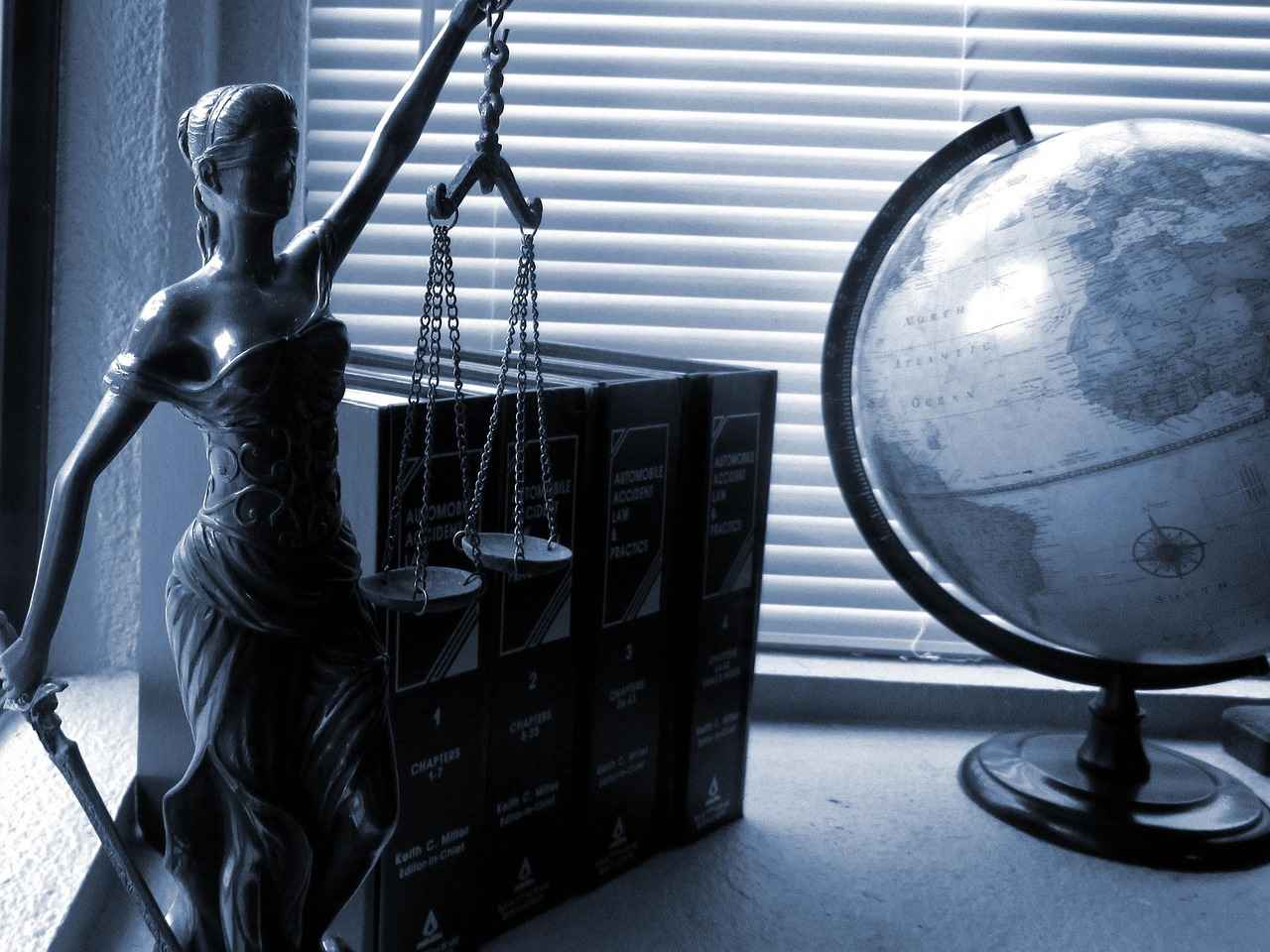
Assault and Battery Legal Issues
Assault and battery cases are serious legal matters that involve intentional harm or the threat of harm to another individual. Understanding the nuances of these cases is crucial for anyone facing allegations or accusations. Assault generally refers to the act of creating a fear of imminent harm, while battery involves actual physical contact or harm. Both offenses can lead to severe legal consequences, including criminal charges and civil liability.
To navigate the complexities of assault and battery cases, it is essential to seek guidance from a skilled criminal defense attorney. These legal professionals specialize in defending individuals accused of crimes and can provide invaluable assistance throughout the legal process. Here are some key considerations when dealing with assault and battery legal issues:
- Understanding the Charges: Familiarize yourself with the specific charges you are facing. Assault and battery laws can vary significantly by state, and knowing the details can help your attorney build a strong defense.
- Gathering Evidence: Collect any relevant evidence that may support your case. This can include witness statements, video footage, and medical records. A lawyer can help you determine what evidence is pertinent.
- Establishing Intent: In assault and battery cases, intent plays a crucial role. Your attorney will work to demonstrate that there was no malicious intent or that the act was committed in self-defense.
- Negotiating Plea Deals: In some cases, it may be possible to negotiate a plea deal to reduce charges or penalties. A knowledgeable attorney can guide you through this process and advocate on your behalf.
- Understanding Potential Outcomes: Knowing the possible outcomes of your case, including fines, probation, or imprisonment, is vital for preparing your defense strategy.
When searching for a qualified attorney to handle assault and battery cases, consider the following tips:
- Look for Specialization: Choose a lawyer who specializes in criminal defense, particularly with experience in assault and battery cases. Their expertise can make a significant difference in your case.
- Check Credentials: Verify the attorney’s credentials, including their education, bar association membership, and any relevant certifications. This information can provide insight into their qualifications.
- Read Reviews and Testimonials: Look for client reviews and testimonials to gauge the attorney’s reputation and success rate in handling similar cases.
- Schedule Consultations: Many attorneys offer free initial consultations. Use this opportunity to discuss your case and assess whether you feel comfortable with their approach.
- Beware of Red Flags: Be cautious of any attorney who guarantees specific outcomes, pressures you to make quick decisions, or has a history of disciplinary actions.
In conclusion, assault and battery cases require careful consideration and expert legal representation. By understanding the nature of the charges and working with a knowledgeable attorney, individuals can navigate these challenging legal waters more effectively. Whether you are in New York City, Los Angeles, or any major metropolitan area, taking the time to find the right legal professional can significantly impact the outcome of your case.

Drug Offenses and Legal Representation
Drug offenses can lead to serious legal repercussions, including lengthy prison sentences, hefty fines, and a permanent criminal record. The complexity of drug-related laws varies significantly from state to state, and the specific circumstances of each case can greatly influence the outcome. Therefore, it is crucial to select an attorney who possesses extensive experience in handling drug-related cases to ensure an effective defense.
When facing drug charges, understanding the legal landscape is essential. Drug offenses can range from possession of small amounts of illegal substances to large-scale trafficking operations. Each type of offense carries different penalties and legal implications. For example, simple possession may result in probation or treatment programs, while trafficking can lead to substantial prison time. An attorney with a deep understanding of both state and federal drug laws can provide invaluable insights into the potential outcomes of a case.
Additionally, the attorney’s familiarity with local courts and judges can be a significant advantage. Knowledge of how specific judges tend to rule on drug cases, along with established relationships within the local legal community, can positively influence the defense strategy. Here are some key factors to consider when searching for a qualified drug offense attorney:
- Experience: Look for attorneys who specialize in criminal defense, particularly those with a focus on drug offenses. Their track record in similar cases can be a good indicator of their ability to navigate the legal system effectively.
- Reputation: Research online reviews, testimonials, and ratings from previous clients. A lawyer’s reputation in the legal community can provide insight into their professionalism and effectiveness.
- Communication: Choose an attorney who communicates clearly and promptly. You should feel comfortable discussing your case and asking questions.
- Strategy: During initial consultations, inquire about their approach to handling drug cases. A strong defense strategy may include challenging the legality of the search and seizure, questioning the evidence, or negotiating plea deals.
- Cost: Understand the fee structure upfront. Some attorneys charge a flat fee, while others bill hourly. Make sure you are clear about what services are included in the cost.
Moreover, be wary of red flags when selecting an attorney. If a lawyer guarantees a specific outcome, it could indicate a lack of integrity or understanding of the legal process. Similarly, if they pressure you to make quick decisions without fully explaining the implications, it may be best to seek representation elsewhere.
In the context of major metropolitan areas like New York City, Los Angeles, and Chicago, the availability of experienced attorneys is more significant. Utilize local bar associations, legal aid organizations, and online legal directories to compile a list of potential candidates. Networking within your community can also yield recommendations from individuals who have faced similar legal challenges.
In conclusion, when dealing with drug offenses, the stakes are high. Selecting the right attorney can make a substantial difference in the outcome of your case. Take the time to research, ask questions, and find a legal professional who not only understands the intricacies of drug law but also aligns with your personal needs and values. Remember, your future may depend on the decision you make today.
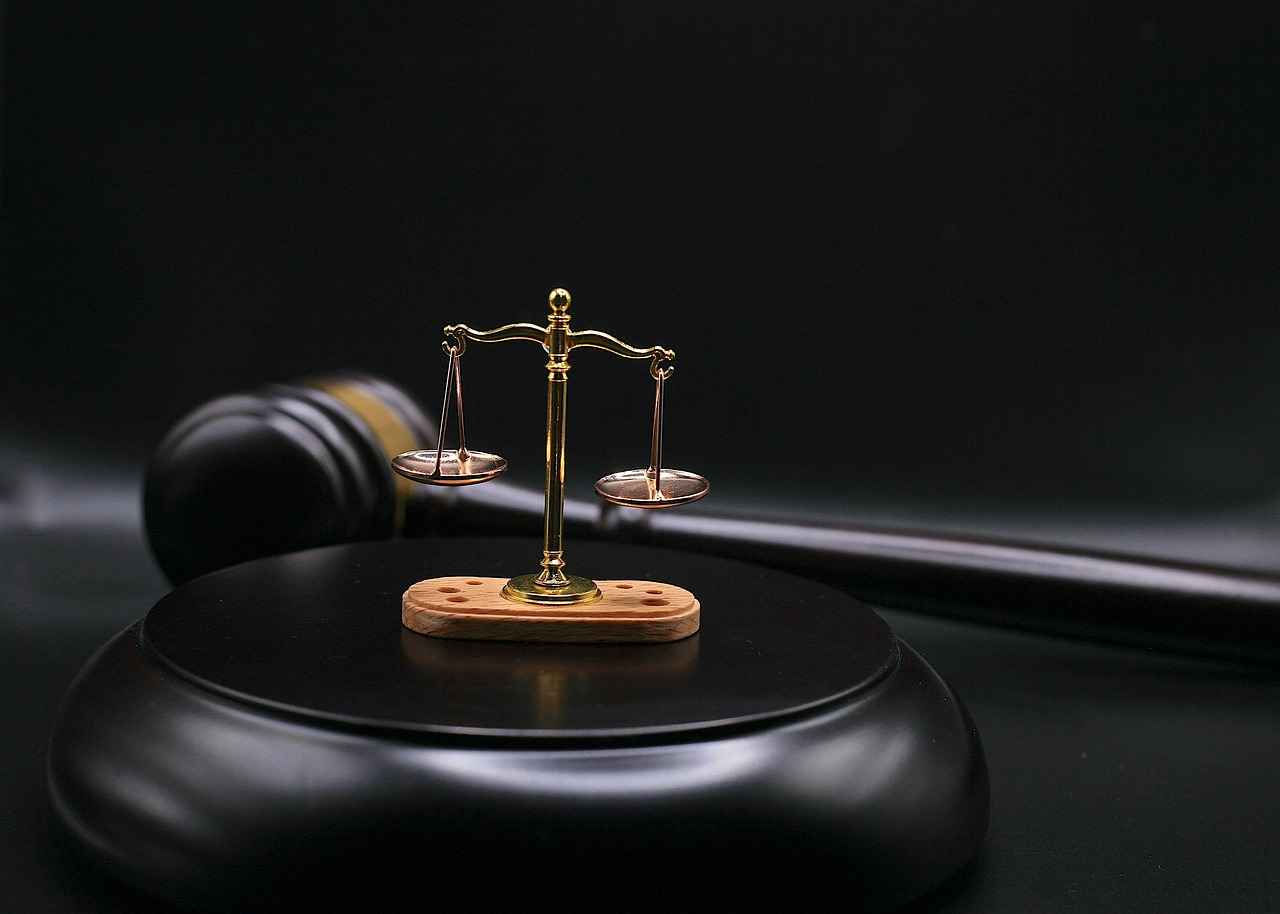
Theft and Burglary Cases
Theft and burglary charges are serious offenses that can have significant legal consequences. When facing such charges, it is crucial to engage a lawyer who not only understands criminal law but also has a solid background in defense strategies. The legal landscape surrounding theft and burglary can be complex, and having an experienced attorney can make a substantial difference in the outcome of your case.
To begin your search for a qualified lawyer, consider the following steps:
- Research Specialization: Look for attorneys who specialize in criminal defense, particularly those with experience in theft and burglary cases. Their expertise will be invaluable in navigating the legal intricacies involved.
- Check Credentials: Verify the lawyer’s educational background, bar association membership, and any additional certifications related to criminal law. A strong educational foundation is often indicative of a knowledgeable attorney.
- Experience Matters: Inquire about the lawyer’s experience with similar cases. A seasoned attorney will have a better understanding of the local court system and prosecutorial strategies.
- Client Reviews and Testimonials: Look for reviews from former clients. Positive feedback can provide insight into the attorney’s effectiveness and client communication.
- Consultation: Schedule a consultation to discuss your case. This meeting allows you to gauge the lawyer’s approach and assess whether you feel comfortable working with them.
It is also important to be aware of potential red flags when hiring a lawyer:
- Lack of Transparency: If an attorney is vague about their fees or the process, it may indicate a lack of professionalism.
- High Pressure Tactics: Be cautious of lawyers who push you to make quick decisions or sign contracts without fully explaining the terms.
- Negative Reviews: A pattern of negative feedback from previous clients can be a warning sign regarding their competency or ethical standards.
In the context of theft and burglary, it is essential to understand the potential defenses available. A skilled attorney will explore various strategies, such as:
- Lack of Intent: Demonstrating that there was no intention to commit theft can be a strong defense.
- Consent: If the property was borrowed or used with permission, this can negate theft charges.
- False Accusation: Proving that the charges are based on misinformation or malice can lead to a dismissal of the case.
Moreover, the implications of a theft or burglary conviction can be severe, including hefty fines, imprisonment, and a permanent criminal record. Therefore, having an attorney who can advocate effectively on your behalf is crucial. They will work to protect your rights and seek the best possible outcome, whether through plea negotiations, trial, or alternative sentencing options.
In major metropolitan areas like New York City, Los Angeles, and Chicago, there are numerous legal resources available. Online platforms such as Avvo, FindLaw, and LegalMatch can help you connect with qualified attorneys in your area. Additionally, local bar associations often provide referral services that can guide you to reputable lawyers.
In conclusion, facing theft and burglary charges is a daunting experience, but with the right legal representation, you can navigate the complexities of the legal system. By conducting thorough research, understanding the qualifications to look for, and being aware of potential pitfalls, you can find a lawyer who will advocate for your interests and help you achieve the best possible outcome in your case.
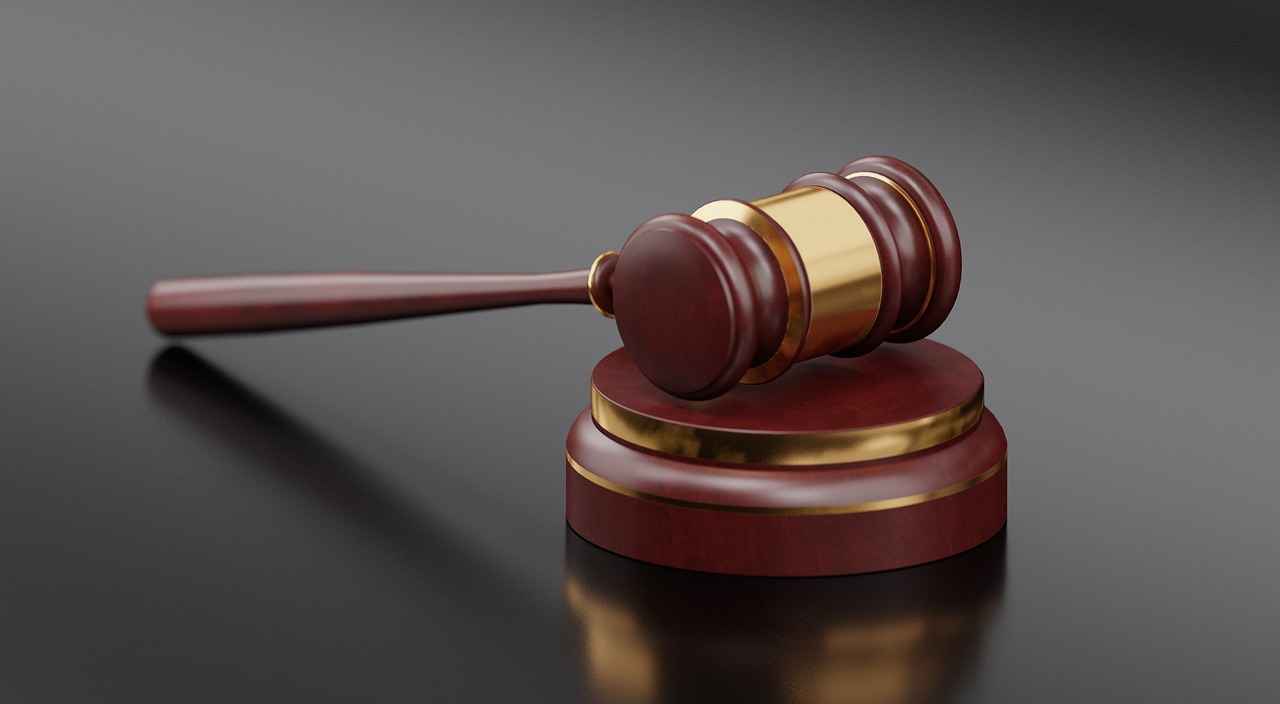
Fraud and Embezzlement Cases
Fraud and embezzlement are serious crimes that involve deceit and manipulation for financial gain. These offenses can take various forms, including investment fraud, credit card fraud, and embezzlement by employees within organizations. The complexity of these cases often requires specialized legal knowledge, making it essential to find a lawyer experienced in white-collar crime.
When dealing with fraud and embezzlement cases, understanding the legal landscape is crucial. These cases often involve intricate financial transactions and require a thorough investigation to gather evidence. A lawyer with a solid background in financial law can navigate these complexities effectively. Here are some key points to consider when seeking legal representation:
- Experience in White-Collar Crime: Look for attorneys who have a proven track record in handling fraud and embezzlement cases. They should be familiar with the relevant laws and regulations.
- Credentials and Qualifications: Verify the lawyer’s educational background, bar association membership, and any additional certifications related to financial crimes.
- Client Reviews and Testimonials: Research online reviews and testimonials from previous clients. This feedback can provide insight into the attorney’s effectiveness and professionalism.
- Initial Consultation: Many lawyers offer free initial consultations. Use this opportunity to discuss your case and assess whether the attorney understands your needs and concerns.
- Transparent Fee Structure: Ensure that the lawyer provides a clear explanation of their fee structure, including any retainer fees and hourly rates. Be wary of hidden costs.
- Communication Skills: Effective communication is vital in legal matters. Choose a lawyer who is responsive and can explain complex legal concepts in a way that you can understand.
Red flags to watch out for include:
- Lawyers who make unrealistic promises regarding the outcome of your case.
- Those who are not transparent about their fees or try to pressure you into signing a contract quickly.
- Attorneys who lack experience in handling similar cases or who are unwilling to provide references.
In New York City and other major metropolitan areas, the competition among lawyers is intense. Utilize various platforms to find qualified attorneys:
- Online Legal Directories: Websites like Avvo, FindLaw, and Martindale-Hubbell can help you search for lawyers based on their specialties and client ratings.
- State Bar Association: Check the state bar association’s website for a list of licensed attorneys in your area, along with their specialties and any disciplinary history.
- Referrals from Trusted Sources: Ask friends, family, or colleagues for recommendations. Personal referrals can often lead to finding trustworthy legal representation.
Fraud and embezzlement cases can have severe consequences, including hefty fines and imprisonment. Therefore, it is essential to take the time to find the right legal representation. By following these guidelines and being diligent in your search, you can ensure that you have a qualified attorney who will advocate for your rights and interests throughout the legal process.
In summary, dealing with fraud and embezzlement requires not only a strong legal strategy but also the right attorney. Ensure that you conduct thorough research, ask the right questions, and trust your instincts when selecting a lawyer. With the right representation, you can navigate the complexities of these cases and work towards a favorable resolution.

Murder and Homicide Defense
Murder and homicide cases represent some of the most severe criminal charges in the legal system. The stakes are extraordinarily high, often involving life imprisonment or even the death penalty. Therefore, having a skilled criminal defense attorney is not just important; it is essential. These cases demand an attorney who not only understands the law but also possesses the ability to navigate the complexities of the judicial system effectively.
When faced with a murder or homicide charge, the first step is to seek legal representation immediately. Time is of the essence, as the prosecution will move quickly to build their case against you. A proficient defense attorney will begin by investigating the details surrounding the incident, gathering evidence, and interviewing witnesses. They will look for inconsistencies in the prosecution’s case and identify any potential defenses, such as self-defense, lack of intent, or mistaken identity.
In your search for a qualified attorney, consider the following criteria:
- Experience: Look for attorneys who specialize in criminal defense, particularly in murder and homicide cases. Their experience in similar cases can provide invaluable insights and strategies.
- Track Record: Examine their history of verdicts and settlements. A successful attorney will have a proven track record of obtaining favorable outcomes for their clients.
- Client Reviews: Reading reviews and testimonials can give you a sense of their reputation and how they treat their clients.
- Credentials: Check their educational background and any special certifications in criminal law.
In addition to these qualifications, it is crucial to have a personal connection with your attorney. You should feel comfortable discussing sensitive information and trust their judgment completely. During your initial consultation, pay attention to how they communicate. A good attorney will listen to your concerns, answer your questions thoroughly, and explain the legal process in a way that is easy to understand.
Another critical aspect to consider is the attorney’s approach to your case. They should be proactive, willing to challenge the prosecution’s evidence, and ready to explore all possible defenses. A strong defense strategy can often lead to reduced charges or even dismissal of the case.
As you navigate this challenging time, be wary of red flags that may indicate a less-than-reputable attorney. Avoid lawyers who:
- Promise Guaranteed Outcomes: No attorney can guarantee a specific result, especially in murder cases.
- Pressure You to Make Quick Decisions: Take your time to choose the right attorney; a reputable lawyer will respect your decision-making process.
- Have Poor Communication Skills: If they are hard to reach or do not respond promptly to your inquiries, consider this a warning sign.
In major metropolitan areas like New York City, Los Angeles, and Chicago, you have access to a wide range of legal professionals. Utilize online platforms such as Avvo or FindLaw to research and compare attorneys. These platforms often include client ratings, practice areas, and contact information, making it easier to find the right fit for your needs.
In conclusion, facing murder or homicide charges is an incredibly daunting experience. However, with the right legal representation, you can navigate this complex legal landscape. Always prioritize finding an attorney who is experienced, communicative, and committed to your defense. Remember, your future is at stake, and choosing the right lawyer can make all the difference.

DUI/DWI Legal Challenges
DUI (Driving Under the Influence) and DWI (Driving While Intoxicated) charges are serious offenses that can lead to severe penalties, including hefty fines, license suspension, and even jail time. The repercussions of a DUI/DWI conviction can extend beyond legal penalties, affecting employment opportunities, insurance rates, and personal relationships. Therefore, it is crucial to navigate these legal challenges with the assistance of an experienced attorney.
When facing DUI/DWI charges, the first step is to seek a lawyer who specializes in criminal defense, particularly in driving offenses. An attorney with a solid track record in handling DUI/DWI cases can provide invaluable guidance throughout the legal process. Here are some key factors to consider when searching for the right legal representation:
- Experience: Look for a lawyer who has extensive experience specifically in DUI/DWI cases. They should be familiar with the local laws and regulations, as well as the specific court system in your area.
- Reputation: Research the attorney’s reputation through online reviews, testimonials, and referrals from trusted sources. A lawyer with a strong reputation in the community is often a good indicator of their expertise and reliability.
- Credentials: Check for relevant certifications and memberships in professional organizations, such as the National College for DUI Defense. These credentials can demonstrate a lawyer’s commitment to staying updated on DUI laws and best practices.
- Consultation: Many attorneys offer free initial consultations. Use this opportunity to assess their communication style, approach to your case, and overall demeanor. It’s essential to feel comfortable and confident in your lawyer’s abilities.
- Fees: Understand the attorney’s fee structure. Some may charge a flat fee, while others may bill hourly. Ensure you are clear about any potential additional costs, such as court fees or expert witness fees.
In addition to these factors, it is also important to be aware of red flags when hiring a DUI/DWI attorney:
- Promises of Guaranteed Outcomes: Be wary of any attorney who guarantees a specific outcome. Each case is unique, and no lawyer can predict the result with certainty.
- Lack of Transparency: If an attorney is unwilling to discuss their experience or provide references, consider it a warning sign. A reputable lawyer should be open about their qualifications and past cases.
- Pressure to Sign Quickly: Avoid attorneys who pressure you into signing a contract immediately. Take your time to make an informed decision.
Once you have selected a lawyer, they will guide you through the various stages of your case, including:
- Investigation: Your attorney will gather evidence, review police reports, and interview witnesses to build a strong defense.
- Plea Bargaining: If appropriate, your lawyer may negotiate a plea deal to lessen the charges or penalties.
- Trial Preparation: Should your case go to trial, your attorney will prepare a robust defense strategy, which may include expert witnesses or character references.
In conclusion, facing DUI/DWI charges can be daunting, but finding the right attorney can significantly impact the outcome of your case. By considering experience, reputation, and communication style, you can identify a legal professional who will advocate for your rights and work diligently to minimize the consequences of your charges. Remember, the sooner you seek legal help, the better positioned you will be to navigate this challenging situation.

Domestic Violence Legal Matters
Domestic violence is a serious issue that affects countless individuals and families across the United States. When faced with such a challenging situation, it is imperative to seek legal representation that is both sensitive and knowledgeable. Victims of domestic violence often find themselves in complex and emotionally charged circumstances, making it essential to have a lawyer who specializes in family law and domestic violence cases.
When searching for a lawyer, consider the following key factors:
- Specialization: Look for attorneys who specifically focus on family law and have substantial experience handling domestic violence cases. These professionals are well-versed in the intricacies of the law and can provide the necessary guidance and support.
- Experience: An attorney with a proven track record in domestic violence cases will have the insight needed to navigate the legal system effectively. Ask about their past cases and outcomes to gauge their competence.
- Empathy and Understanding: It is crucial to find a lawyer who demonstrates empathy towards your situation. A supportive attorney can make a significant difference in how you feel throughout the legal process.
- Reputation: Research potential lawyers online and check their reviews and testimonials. A strong reputation in the community can be a good indicator of their effectiveness and reliability.
In addition to these factors, it is essential to be aware of red flags when selecting a lawyer:
- Lack of Communication: If an attorney is difficult to reach or does not respond promptly to your inquiries, it may indicate a lack of commitment to your case.
- High Turnover Rate: Frequent changes in staff or attorneys within a firm can signal instability, which may negatively impact your case.
- Unclear Fees: Be cautious of lawyers who are not transparent about their fees or who pressure you into signing contracts without explaining the terms.
Furthermore, consider utilizing various platforms to find qualified attorneys:
- Legal Aid Organizations: Many cities have legal aid organizations that provide free or low-cost legal services for victims of domestic violence.
- Online Directories: Websites like Avvo and FindLaw allow you to search for lawyers based on their practice areas and client reviews.
- Local Bar Associations: Many local bar associations offer referral services that can connect you with qualified attorneys in your area.
Finally, when meeting with potential lawyers, prepare a list of questions to ensure they are the right fit for your needs. Ask about their approach to handling domestic violence cases, their familiarity with local laws, and how they plan to protect your interests. Remember, the goal is to find an attorney who will advocate for you and help you navigate the complexities of the legal system while ensuring your safety and well-being.
In summary, dealing with domestic violence is a daunting experience, but with the right legal representation, you can find the support and guidance necessary to reclaim your life. Take your time in selecting an attorney, and don’t hesitate to seek help from support organizations that specialize in assisting victims of domestic violence.

Finding Qualified Attorneys in NYC
When searching for a lawyer in New York City, it is essential to take a systematic approach to ensure you receive the best legal representation for your case. The legal landscape can be overwhelming, especially given the variety of legal issues one might encounter. Here are some key factors to consider when selecting an attorney:
- Credentials: Look for lawyers who have the necessary qualifications, including a law degree from an accredited institution and a valid license to practice law in New York. Additionally, consider their membership in professional organizations, such as the American Bar Association or local bar associations.
- Experience: An attorney’s experience can significantly impact the outcome of your case. Seek out lawyers who have a proven track record in handling cases similar to yours. For instance, if you are dealing with a personal injury case, find a lawyer who specializes in that area and has successfully managed similar claims.
- Specialization: Legal matters can be complex, and having a specialized attorney can make a difference. For example, if you are facing a medical malpractice claim, look for a lawyer with specific expertise in medical negligence.
- Reputation: Research online reviews and testimonials from previous clients. Websites like Avvo and Martindale-Hubbell can provide insights into a lawyer’s reputation and peer reviews.
- Consultation: Many lawyers offer free initial consultations. Take advantage of this opportunity to discuss your case and gauge the lawyer’s understanding and approach to your situation.
- Communication: Effective communication is crucial in any legal matter. Ensure that the lawyer you choose is responsive and willing to keep you informed throughout the process.
- Fees: Understanding a lawyer’s fee structure is vital. Some attorneys charge hourly rates, while others may work on a contingency basis, especially in personal injury cases. Make sure you are clear about the costs involved before hiring.
In addition to these factors, it is important to be aware of red flags that may indicate an attorney is not the right fit for you:
- Lack of Transparency: If a lawyer is not forthcoming about their fees, experience, or the potential outcomes of your case, consider this a warning sign.
- High Turnover: A law firm with high staff turnover may indicate internal issues. Stability is often a sign of a well-managed practice.
- Pressure Tactics: Be wary of attorneys who pressure you into making quick decisions or signing contracts without giving you time to consider your options.
In conclusion, finding a qualified attorney in New York City requires careful consideration of several factors, including credentials, experience, specialization, and reputation. By conducting thorough research and asking the right questions during consultations, you can make an informed decision that will greatly enhance your chances of achieving a favorable outcome in your legal matter.
Frequently Asked Questions
- What types of cases do personal injury lawyers handle?
Personal injury lawyers typically handle cases arising from accidents, negligence, and injuries caused by others. This can include car accidents, slip and fall incidents, and workplace injuries, among others.
- How can I find a lawyer specializing in medical malpractice?
To find a lawyer specializing in medical malpractice, look for attorneys with a proven track record in this field. You can check online reviews, ask for referrals, and ensure they have relevant experience in handling similar cases.
- What should I do if I am involved in a breach of contract dispute?
If you are involved in a breach of contract dispute, it’s important to consult with a lawyer who specializes in contract law. They can help you understand your rights, negotiate a resolution, or represent you in court if necessary.
- What are my options in a landlord-tenant dispute?
In a landlord-tenant dispute, you can seek legal advice to understand your rights under housing laws. A qualified attorney can help you navigate issues related to lease agreements, eviction notices, and habitability concerns.
- How do I choose the right lawyer for my case?
Choosing the right lawyer involves considering their experience, specialization, and past case outcomes. Schedule consultations to discuss your case and assess how comfortable you feel with their approach and expertise.














